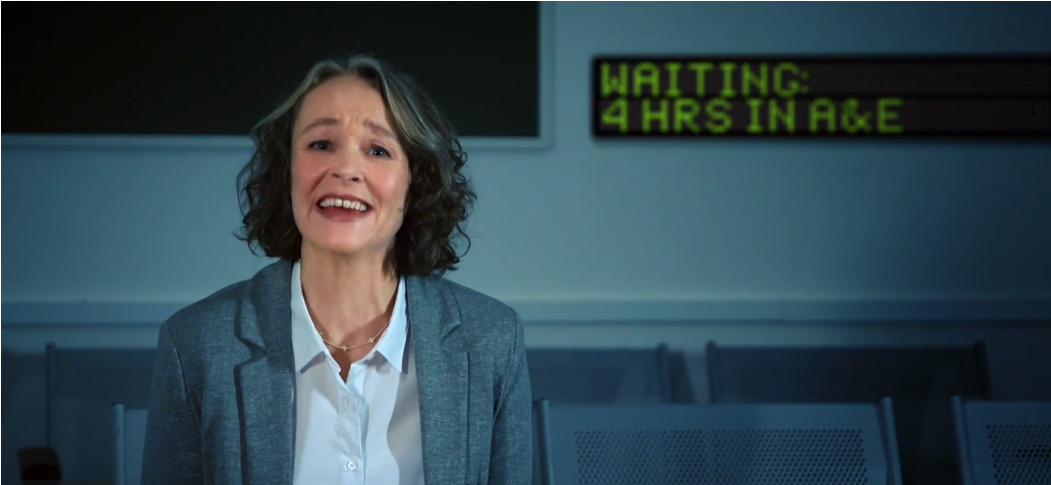How to interpret labour's viral campaign broadcasts | thearticle
- Select a language for the TTS:
- UK English Female
- UK English Male
- US English Female
- US English Male
- Australian Female
- Australian Male
- Language selected: (auto detect) - EN

Play all audios:

“We lost control”, the narrator laments, as viewers are shown a devastated fishing dock in Hastings. “But change is coming”, they continue, as the music lifts and the camera pans onto local
Labour Party campaigners in Mansfield. It’s the critical moment in “Our Town”, a film released by Labour last year as part of an ongoing series where, according to the director Simon Baker,
the party wanted to address “held back” communities who had been “let down by successive governments of both colours”. To attract those who feel ignored by our current politics, the film
employs evocative rhetoric; a world away from the dull, meaningless platitudes usually pumped out by political parties. It uses repeated phrases such as “rebuild Britain” to propose that the
country is broken and to advocate a return to the past. The line “We will give control back to local people”, is similar, and obviously inspired by Vote Leave’s “Take back control”. Being
left behind by globalisation – a sentiment articulated in the 2016 referendum – is the central theme of this film. In Baker’s own words, the film embodies a “populist spirit, but focusing in
a progressive direction.” In January, Labour released a sequel, “Our Country”. Again, the rhetoric is typically populist. In their book, _ Populism in Europe and the Americas _ , Cas Mudde
of Georgia University and Cristóbal Rovira Kaltwasser of Diego Portales University argue that populism “considers society to be ultimately separated into two homogenous and antagonistic
groups, ‘the pure people’ and ‘the corrupt elite’”. This distinction is plainly expressed in Labour’s second film. The narrator says, “The hard work and sacrifices of so many, have been
given away to benefit a few. While many struggle, a few grew richer and failed the country, plunging us into crisis and austerity.” (Also note there is a single speaker, an everyman
archetype, who constantly refers to “us”.) Last month, the party released their third collaboration with Baker. Concentrating on the NHS, the film used actors, playing the roles of patients
and staff, to convey the same confrontational narrative. “The NHS is one of the things that made me proud to be British, and they’re running it into the ground so they can sell it off to
their mates”, one reads. Another says, “We got to tighten our belts. We’re all in it together. They’ve been saying that for the past eight years and where’s it gotten us?” Through a
passionate, colloquial delivery, and an accentuated contrast between “we” and “they”, the film captures popular fears and concerns. “I definitely wanted there to be a sense of anger in that
film,” Baker said. Interestingly, however, the primary arguments made in Labour’s films are straightforward and policy-focused. Isabela and Norman Fairclough, academics in linguistics from
the University of Central Lancashire and the University of Lancaster, have suggested a method to dissect arguments in political discourse. According to the pair, arguments are formed of
circumstances, values, goals and “means-goals” (ways to achieve the goal). Sure, it seems vague and unpragmatic. But, by using this method, a curious observer can comprehend the underlying
messages in political speech. When applied to Labour’s films, the discordance between the arguments and the language becomes clear. In “Our Town”, for example, the party wants to “bring our
high streets and communities back to life”, by enacting “real and lasting change”. These are the goal and the means-goal that Fairclough and Fairclough describe. Taken from the context of
its circumstances and values, this doesn’t seem a particularly populist contention. However, when steeped in the film’s impassioned language of a post-financial crisis setting (“We lost the
factories. We lost the jobs”), and an isolating perspective (there is certainly no mention of the environment or London rent prices), it undoubtedly is. The argument of “Our Country” is very
similar. The final film, “This is what the NHS crisis looks like”, is the most forceful of the three, but again, the argument is simple. The goal is the fix a broken healthcare system, and
the means-goal is a Labour government. In this case, however, even the circumstances and values are relatively benign; it is set in the present day, during the yearly winter crisis, and the
perspective is of a desperate public and staff. Powerfully conservative lines such as “Labour created our NHS, and we will rebuild it” are enough to convey the populist message. So, at their
foundation, Labour’s arguments aren’t populist, but they are swaddled in emotive language. The party are clearly appealing to an angry majority who have been ignored since the 2016
referendum. Corbyn’s team say they will continue with this direction, and, electorally speaking, they are right to do so – these voters aren’t going away. Once we leave the European Union,
they will be looking for Brexit’s domestic equivalent.